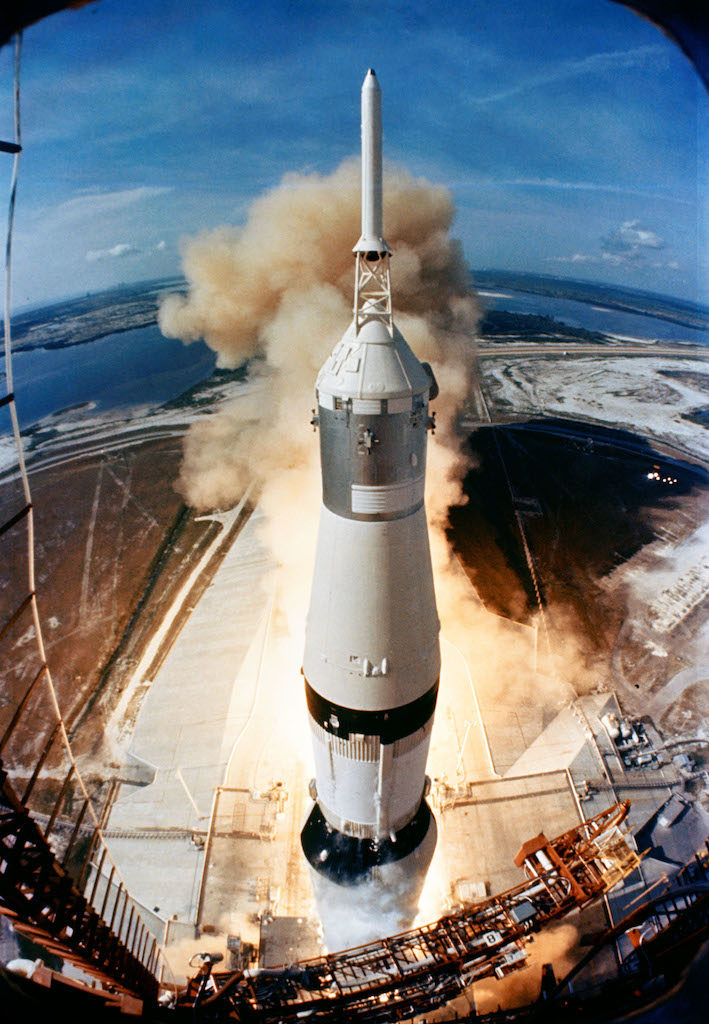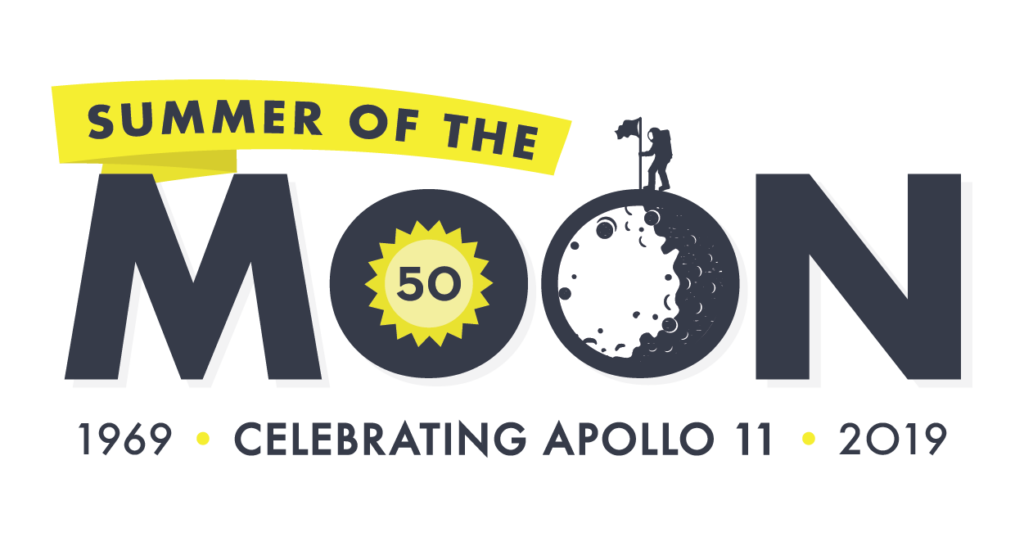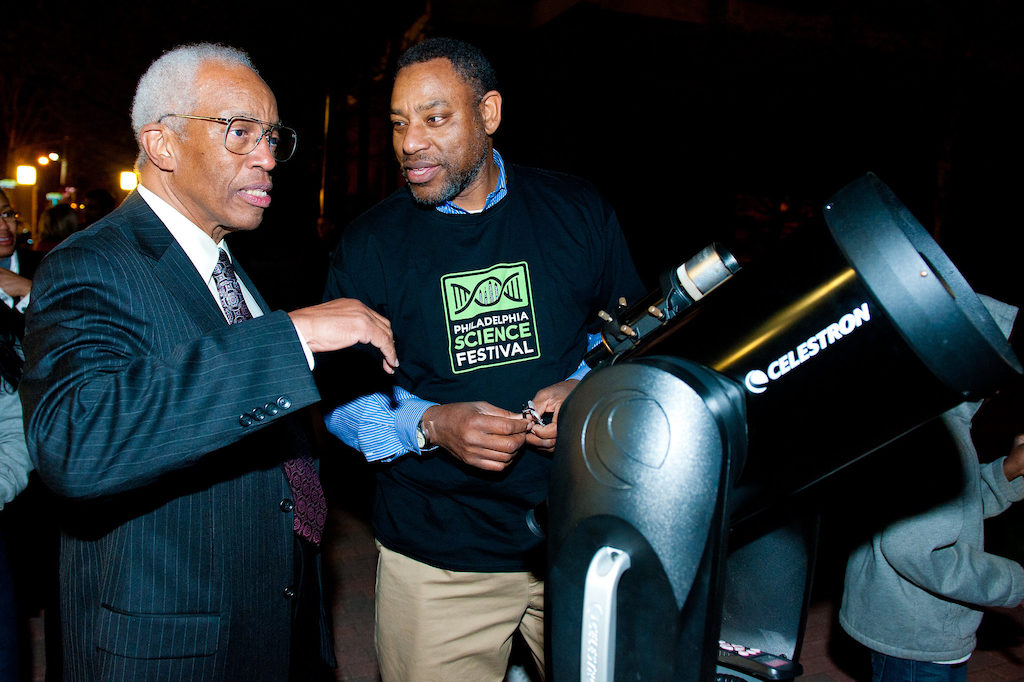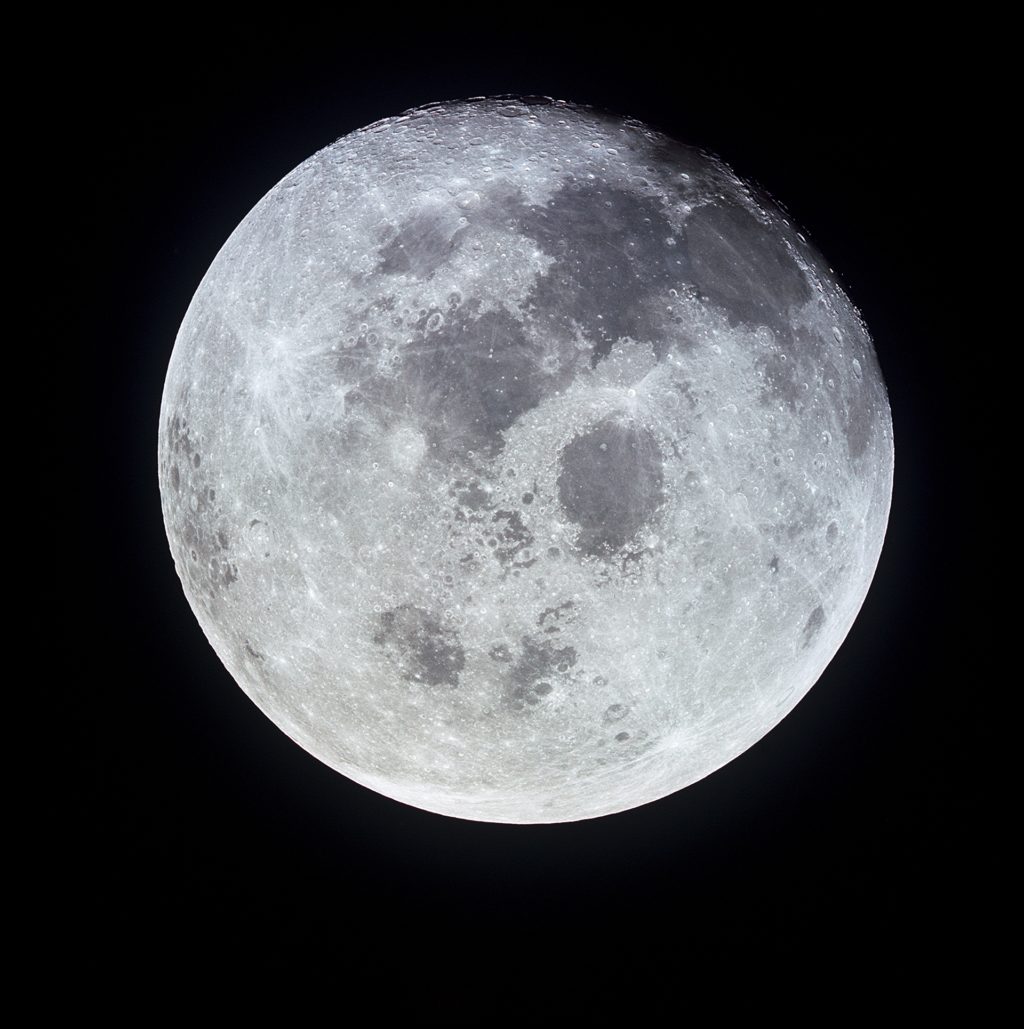The Franklin Institute celebrates the 50th anniversary of the first Moon landing with Summer of the Moon.
Five decades Apollo 11 was launched into history. Astronauts Neil Armstrong, Edwin “Buzz” Aldrin, and Michael Collins blasted off in a Saturn V rocket from the Kennedy Space Center in Florida at 9:32 a.m. on July 16, 1969 — and four days later, landed on the Moon. Armstrong and Aldrin became the first humans to set foot on the Moon, while Michael Collins remained aboard the command module in lunar orbit.

The Franklin Institute marks the 50th anniversary of the first Moon landing July 20, 1969, with Summer of the Moon – a museum-wide summer celebration featuring a suite of lunar events designed to reflect on the historic achievement and look ahead to the future of space exploration.

Derrick Pitts, Chief Astronomer, and director of the Fels Planetarium at The Franklin Institute in Philadelphia remembers watching the Moon Landing alongside his brother in their Tioga- Nicetown home. A lifelong space nerd, Pitts currently hosts FI’s “Night Skies in the Observatory” and will lead attendees through the popular rooftop stargazing events during the anniversary week.
“It was a crazy time back then when this was going on,” recalled Pitts. “It wasn’t the only thing that was happening, for sure. And in the middle of all that turmoil over civil rights, the Vietnam War and turmoil in the US government was this great human adventure that was unfolding before everybody in the world. An interesting thing I’ve learned about that, sure, America was enthralled by this, but it seems other people around the world were too. Not just Americans, but many, many other people around the world saw themselves, as sort of like companion explorers along with those three guys. So it was really a human experience much more than it was a political experience, even though it had its political purposes. And it was much more of a human experience than it was really a scientific expedition, although it had its scientific value to. And here we are now 50 years later, trying to figure out, ‘wait, how did we do that and we can’t do these things today?'”
The New York Times recently published the story of Ed Dwight; an 85-year-old former astronaut positioned to be the first African American man in space. Dwight was backed by the Kennedy Administration, eager to position itself a champion of civil rights to the rest of the world; and a powerful advocate, President Kennedy himself. Then JFK died. Within weeks, Dwight’s career ended. And the United States wouldn’t send its first Black man — Philly’s own Guion “Guy” Bluford — into space until 1983.
Pitts’ early interest in science and music shaped the course of his life and is the basis of his STEM advocacy to African American students.

Fels Planetarium at the Franklin Institute, and Dr. Guy Bluford. Photo Credit: J Fusco
“I think it’s really important that we tie together our history in this because if you think about it, [Blacks] were the first real explorers on the planet,” Pitts explained. “We circumnavigated the African continent, and we explored out into other land surrounding the African continent. We were on the voyages of all of the great explorations that took place on the planet. We have a place in this regardless of whether you’ve seen it in history or not. There’s no denying it: we can do it too.”
For more information on programming at Pennsylvania’s most visited museum, visit fi.edu and follow The Franklin Institute on Twitter @TheFranklin and Instagram @FranklinInstitute, hashtag #franklininstitute.
About Post Author
Discover more from dosage MAGAZINE
Subscribe to get the latest posts sent to your email.

